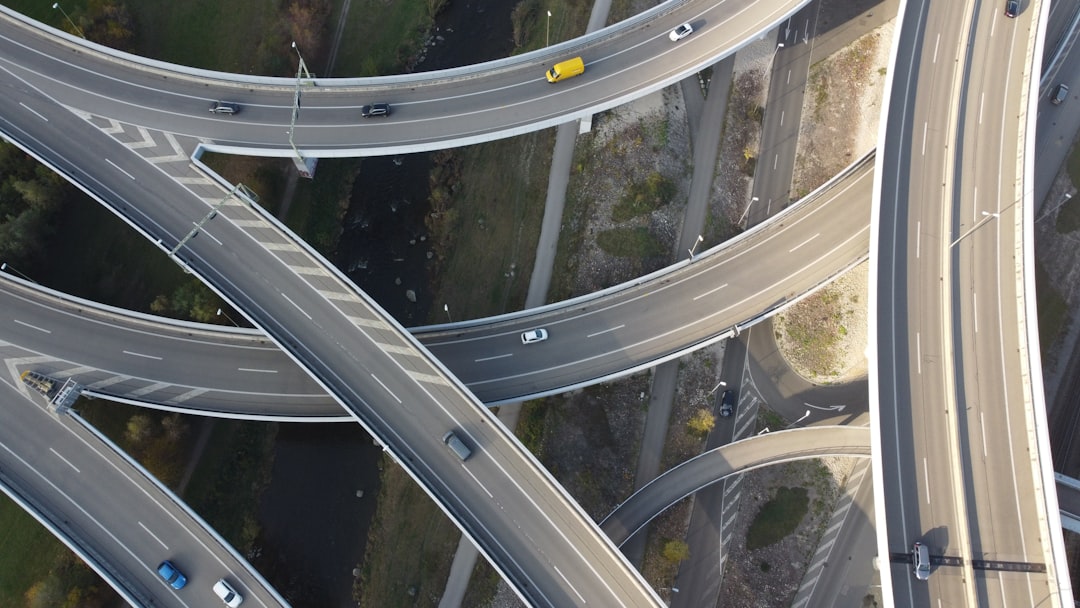Time to ditch the autobahn?

Dear Reader,
An interesting debate is raging behind the scenes in the German government at the moment. While on the surface the subject is banal - how much money to invest in asphalt - it actually tells us a lot about two strands of thinking clashing at the top of German government, and about the political trade-offs shaping Germany’s wider infrastructure policy.
On the one hand you have the ideology of ‘choice is good’ represented by the liberal Free Democrats. They control the Transport Ministry and are pushing for a multi-billion euro investment in modernising and extending the country’s autobahn system.
Their logic goes something like this. The more disposable income that Germans have had over the decades, the more that they have decided to spend it on owning their own car. Put simply, a car gives people more choice: they can travel further to shop, they can travel further to work, and they can travel further to visit friends and go on holiday. All good things.
According to the Free Democrats, government’s primary aim is to respond to these desires by building the infrastructure that facilitates them. Ergo, invest in keeping the autobahns as the envy of the world.
Moreover, the better the roads are, the easier it is to transport goods across long distances. That’s good for German industry and good for consumers.
On the other side of the debate you have the Greens who agree that spending money on roads encourages people to drive. It’s just that they see this as a bad thing. Studies show that more roads you build, they more people use cars, something that pumps carbon dioxide into the atmosphere at dangerous levels.
What’s more autobahns are noisy, ugly things that tear through beautiful landscapes.
According to the Greens, the government’s primary aim should be to control people’s choices. People should instead be encouraged to travel by train, or to travel less in general - and buy locally. Aka: why eat a juicy Italian tomato when there are perfectly good cabbages growing on your doorstep?
These opposing views mean that the government has been unable to pass a key new piece of legislation that is supposed to make good on its promise of modernising the country after the stagnation of the Merkel years.
All three parties in the ‘traffic light’ coalition agree that they want to cut bureaucracy to kick start public infrastructure projects.
The Greens insist that only ‘climate friendly’ infrastructure like wind turbines and solar parks should classify as being in the “overriding national interest” and therefore largely freed from old planning procedures.
But the Free Democrats insist that new stretches of autobahn ought to also be classified as such. A modern road system is key to securing German wealth in the coming decades, they say.
Several crisis meetings at the Chancellery have failed to break the deadlock.
Olaf Scholz is believed to secretly side with the Free Democrats on the issue, but has decided to stay neutral in order to maintain harmony.
Moreover, Scholz has to be mindful of the fact that his coalition has publicly committed to encouraging people to start travelling by train in order to help the country meet its climate targets.
Germans like driving
The public debate around cars vs. trains obscures the more sober reality, though. And that reality is that trains only account for a very small proportion of overall travel in Germany. In 2019, Germans travelled some 900 billion kilometres by car and just 180 billion by train, according to statistics compiled by the Frankfurter Allgemeine Zeitung.
The haulage situation is hardly different. Some 4.8 billion tonnes were transported in lorries in 2019 compared to less than half a billion on the tracks.
Add to that the fact that the state already invests more in maintaining its rail infrastructure than what it spends on its much more heavily used roads and another easily ignored truth becomes apparent: more rail usage inevitably means higher costs of transportation.
In other words, hard economic realities make it almost certain that the autobahn system is going to remain the key pillar of Germany's infrastructure plans for the foreseeable future.
Given that bridges built in the 1960s are crumbling under the weight of current levels of traffic on just about every autobahn in the country, and that there are over 500 stretches of highway under repair due to underinvestment of recent years, don’t expect the federal autobahn budget to be slashed any time soon.
At the same time, in a land where the drone of a motorway is never too far away, questions about the creeping industrialisation of the countryside are legitimate. What price does economic growth come at - and is it always worth paying?



Not sure the greens would agree with your characterization that they believe the primary goal of gov is to restrict people’s choices. But rather perhaps a securing a habitat for future generations? By your own logic, isn't a government that invests in auto industry and infrastructure over mass public transport also “controlling” choice by making transport by car easier and more comfortable?
The problem is that even if the Greens win and DB gets the billions it needs the required upgrades will take years to get done resulting in delays and cancellations - and as happening now - people will choose to drive/fly
Second point is more challenging - the more lanes you add the more traffic you get